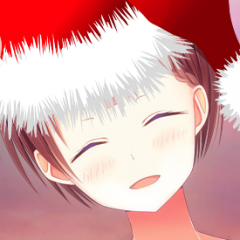Leaderboard
Popular Content
Showing content with the highest reputation on 05/03/20 in all areas
-

Silverio Ragnarok
Chrisfreak reacted to Clephas for a blog entry
The final game in the Silverio series enters with a whimper and exits with a bang. First, this game absolutely requires that you have played the previous two to appreciate. Too much of what is going on requires understanding of concepts that aren't reintroduced but constantly referenced throughout the game. This game is based only a few years after Trinity in Canterbury, the theocratic state ruled by a Japanophilic religion based on seeing old Japan as a sort of El Dorado. I should note that the brief summary of the concept I am about to give WILL spoil parts of Trinity and Vendetta, so I am going to ask that anyone who wants to avoid these skip down past the next paragraph.. I also recommend that anyone who has played the previous two games that wants to start Ragnarok avoid the official website and store pages' descriptions and character profiles at all costs. While most of the information there is revealed within the first hour or two of play, it does hurt the experience that so much is revealed just by reading up on the game in advance. Ragnarok starts as a revenge story, wherein the protagonist - Ragna - and his childhood friend - Misaki - set out to take revenge on the four immortal gods who founded and have ruled Canterbury for the past thousand years. They are accompanied by Cecile, the current head of the Liberati family of Antalya and they are allied with Angelica, an Inquisitor of the Church. Now, I should note that a recurring theme throughout the story is that the four immortals are not, as is standard to most stories, full of weak points that can be easily used against them. They are immortals who have long-since left behind the weaknesses of their youth. They have such an immensity of experience behind them that they have literally seen (in a general sense) every variation on rebellion, love, hate, betrayal, etc that humans have to offer. In addition, their brains are still young, so they are constantly learning, and they instantly process everything around them based on preexisting experience. I feel the need to make the distinction partly because it is constantly emphasized at every point of the story and in part because my own assumptions were sort of left in the dust by this approach to immortality. I'll be blunt, while the first scene is dramatic and awesome, the pacing of the early part of the game is pretty abrupt. I think this is worth noting because it is out of character for Light, which tends to produce games that start out at a pretty deliberate pace before accelerating rapidly as you approach path splits. This led to an uncharacteristic disconnect with the characters for me during much of the common route, which is perhaps the most negative part of this game. In addition, there are a lot of aspects of this game that are more... intimately gut-wrenching and visceral than either of the previous two games. In particular, any major scene that involves Izana threatens to give me nightmares, because she seems like someone you would normally see in a Clock Up game. I also felt a constant sense of pity for all the people used by the antagonists. To be honest, the degree to which the antagonists quite naturally manipulate people without it seeming like manipulation makes Gilbert from Trinity look open and honest. Now for the main characters. One thing I liked about this game is that the main characters had actual reasons for being so deadly beyond mere 'fate' or natural talent. Ragna and Misaki are mercenaries (with Ragna having been an unwilling comrade of Dainslief at one point), Cecile was raised from birth to her role, and Angelica both has unmatched talent and has worked to polish it. One problem that constantly hurts many chuunige is the obsessive tendency many games have to give massive power to someone who has no training, no knowledge, and no skills to use it. It might make newbies find it easier to empathize with them, but for someone a bit more jaded it can be highly irritating. The music in this game utilizes a mix of music from previous games in the series, as well as new tracks. In this case, it works to the game's advantage, because it provides a distinct sense of continuity between the three entries in the series. This is especially the case for the few SOL scenes and the less climactic battle scenes, where a new track would be unlikely to help. Angelica For people who hate Izana as much as I do, Angelica's path can be seriously depressing at times. Of the three paths, it pushes the plotting aspects of the four immortals into the forefront the most bluntly and in the most distasteful of ways. There is no sense of the glorious (a common experience in Trinity and Vendetta) in the battles, save for one midway through, and there is a lot of devastation left in the wake of the story's progression (even by Light standards). Angelica is an Inquisitor, as well as being the one in control of the foreign pleasure district, and she has a good brain to match. This is a girl who has survived by hiding her rebelliousness and utter hatred for the four immortals for the entirety of her young life, always acting the obedient servant of the gods. As such, she is as twisted up inside as some of the series' antagonists, and she makes Chitose from Vendetta seem simple and straightforward. That said, she is an Amatsu, so she is predictably extreme in her loves and hates. This path's most excellent moments mostly concentrate near the end, with there being a lot of plotting and losing battles (which can get frustrating) in the middle. That said, without the buildup of all those tragic and frustrating moments, this path wouldn't have turned out nearly as good. Cecile Cecile is the head of the Liberati, one of the Ten Families of Antalya, an oligarchic nation ruled by laissez-faire capitalism at its worst. As such, she has a definite dark side... but with Ragna and Misaki she is easygoing and loving. In fact, with Ragna she aggressively shows her loving side... while showing her bloodlust in private whenever they speak of the antagonists. Other than Ragna and Misaki, she has the most intense hatred for the game's antagonists, and the impression of her as a blood-hungry avenger is only enhanced, rather than weakened, by her friendship with the other two avengers. Her path is more straightforward than Angelica's, but it still has a ton of plotting by the path's two primary antagonists. What would be a perfect plan to the antagonist of a normal chuunige antagonist is only the first of many layers for the antagonists of this game, and this path shows the sheer cold-blooded nature of that plotting without the more grotesque aspects you see in Angelica's path. I'd say that the battles in this path are slightly improved from that of Angelica's. Misaki ... it is fairly obvious that this is the true path from the beginning, but even without that, the fact that this path is literally 2.5 times longer than the other two heroine paths would tell you that in any case. Misaki is Ragna's childhood friend, partner, almost-lover, and best friend all wrapped into one silver-haired package. Normally, she is a cheerful, easygoing country girl with a slight tendency toward eccentricity. However, in the worst kind of battles, she can show a cold harshness that is at odds with her normal persona. This path has so many turn and turn about moments that I won't bother to explain them here. Just let it be said that this path was a fitting... a more than fitting end to the series that I wished would never end. There are so many points where you think things are over and suddenly the apparently losing side turns the tables that after a while, I just felt like I was going to drop from sheer emotional exhaustion. Conclusion This is, by far, the most complex of the three games. As such, it is also the most challenging for the reader to keep everything that is going on straight. Considering that both Vendetta and Trinity were fairly complex, even as chuunige go, that is definitely saying something. I will say that, while the pacing can be choppy toward the beginning, once things really get going in the heroine paths, that clears itself up pretty quickly. This game, like most Light chuunige, has great battles, great characters, great writing, and a great story... and it probably will never get translated, lol. I'm sad to see this series end, and I am even more sad not to know the future of Light's staff or even the Light name (I'm still hoping that Akabei will keep the team together). However, if it had to end, it does end on a bang.1 point -
Yeah it should ask for restart immediately. If you can't get it to change with a restart now (just change it to English and click OK even if it doesn't ask for restart and restart yourself) then there are 2 things you could still try: 1. System restore / system file checker tool (google it) 2. Creating xml file with notepad <gs:GlobalizationServices xmlns:gs="urn:longhornGlobalizationUnattend"> <gs:UserList> <gs:User UserID="Current" CopySettingsToDefaultUserAcct="true" CopySettingsToSystemAcct="true"/> </gs:UserList> <!-- system locale --><gs:SystemLocale Name="en-US" /> </gs:GlobalizationServices> and running in command prompt (admin mode) where D:\locale.xml is whatever the file path to your xml file is control.exe intl.cpl,, /f:"D:\locale.xml" and then restarting your PC.1 point
-

There are way too few visual novels with actual gameplay
Zakamutt reacted to Chronopolis for a topic
From a ideal standpoint, the moment you mix gamplay and narrative, one of the two has to give way. For VN's generally you want to prioritize the story and do everything so that the gameplay doesn't interfere with the narrative. (Actually I thought of mahou shoujo too, lol@Zakamutt). My gripe is that games in general have too many levels, and nothing sucks more than unneccesary levels also killing the story pacing. Just do battles, and if there are too few add extra levels on the side. If you prioritize gameplay, you now have the freedom to cater the story and pacing to what works best for the gameplay. You can't do this if you already have a plot planned out.1 point -

There are way too few visual novels with actual gameplay
Happiness+ reacted to Zakamutt for a topic
While I generally agree with you, I thought the analogue gameplay was nicely inserted and fun, not to mention thematically appropriate and immersive as you play an investigator and there's data to be found with the commands. However, I'm used to using command line interfaces, which I imagine is a rare quality these days. Personally I'd like to extend your sentiment even further though. A lot of visual novels created EVN wise are (at least in marketing) incredibly and unhealthily obsessed with frequent choices (when they're not kinetic... but I'm fine with that extreme, so whatever). I don't think they ever really deliver on the freedom they pretend to be giving, and even if they did I'd rather not have to replay a zillion times to see the full text. Especially if there's no flowchart to use as a guide. I'd rather people focus on making good stories than providing unneeded agency. On a vaguely related note, Shinsetsu Mahou Shoujo is p good gameplay hybrid w1 point -

There are way too few visual novels with actual gameplay
Chronopolis reacted to Happiness+ for a topic
Shit, everyone else here said it better than I could. But, fuck, I am going to put my two cents here anyway. Personally, I just don't want gameplay mechanics. I will give you example of why I think they kinda suck in visual novels. In analogue, a hate story. There is gameplay, but the gameplay itself is just trash. It's a annoying hacking scene that takes you out of the narrative. It just interrupts the flow of story, and for what, interactivity? It's a problematic scene, because it's the only scene that has gameplay and there's no gameplay loop. Games need to have a core gameplay loop with winning and losing. Visual Novels typically don't need to that. In fact, I am of the opinion that it's detrimental in most cases like analogue. Hell, even JVNs like Kara No Shoujo tried to be gamey and it did not work because it was too difficult, good luck getting through some of the endings without a walkthrough. Visual novels today, mostly JVNs evolve out of dating sims. That's why they keep the character route, thing we are used to. As others have noted, and as a EVN developer, gameplay mechanics are hard to make because you have test, debug, over and over again. While instead you can be doing other things like scripting and GUI design etc. If you want a visual novel to be more interactive, there's plenty as others have said, but honestly. I am glad it's not the norm. For some reason, a lot people nowadays think we need to make a VN that's more interactive because that's "fun". Even though, most of the interactivity boils down to boring mechcanics that exist just to piss off readers at worst. gameplay as narrative is really hard to develop, and frankly in all my years as a VN reader, I haven't seen a single VN pull this off. The best VNs I ever read, never bothered with gameplay in the first place. The ones that do aren't really known for having amazing gameplay either. Honestly, I much rather learn cool scripting effects from JVNs like Dies Irae and Tokyo Babel than to try to create gameplay. I see myself as a VN developer in my heart, not a game developer. The two may overlap, but I am not here to blur the lines. My position is definitive, I just don't see visual novels as games. If I did, they would be some of the lamest games I ever played. I see them as novels, more specifically visual novels. They shouldn't have to adhere to the standards of what games ought to be or even try to.1 point

